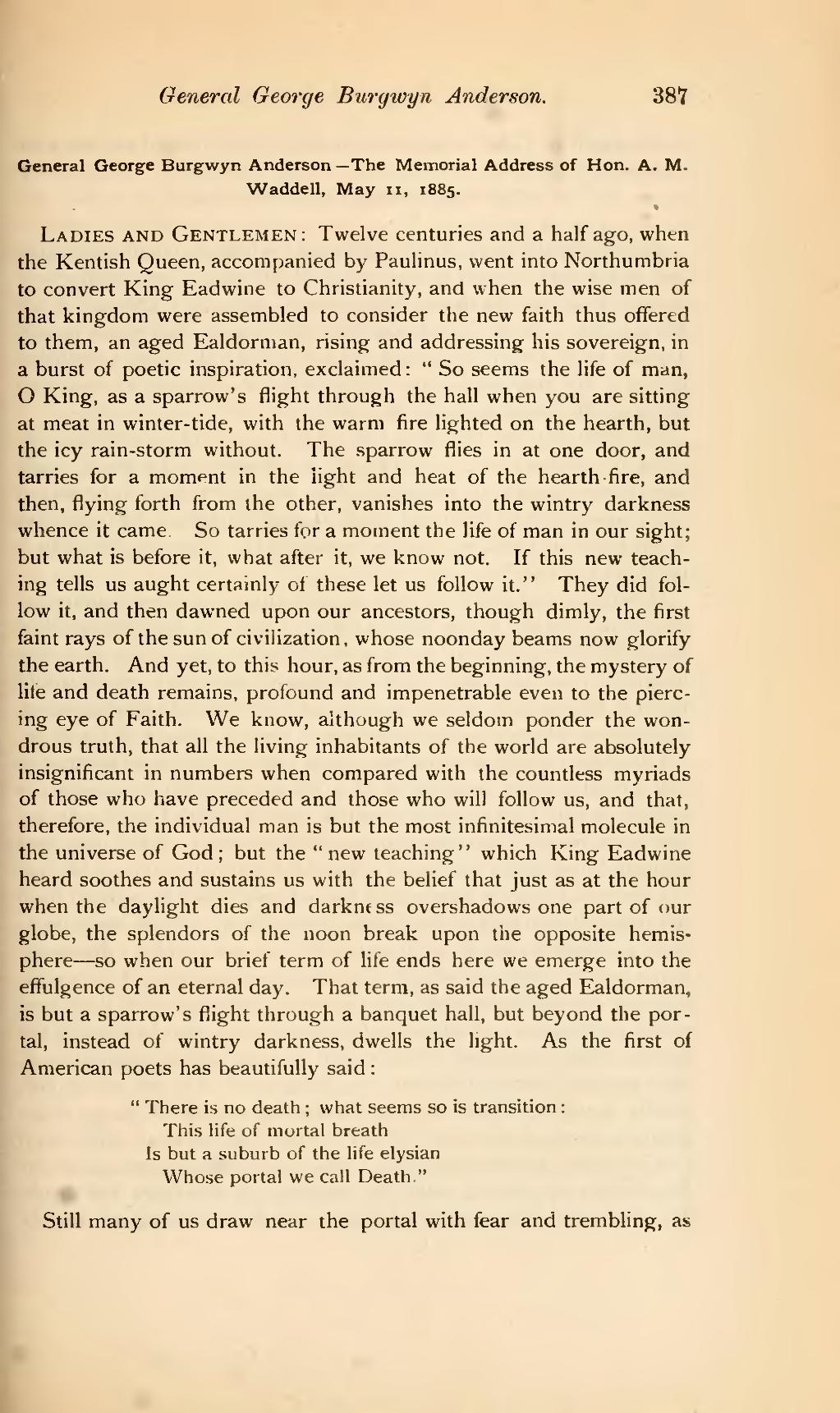General George Burgwyn Anderson, 387
General George Burgwyn Anderson —The Memorial Address of Hon. A. M. Waddell, May ii, 1885.
Ladies and Gentlemen: Twelve centuries and a half ago, when the Kentish Queen, accompanied by Paulinus, went into Northumbria to convert King Eadwine to Christianity, and when the wise men of that kingdom were assembled to consider the new faith thus offered to them, an aged Ealdorman, rising and addressing his sovereign, in a burst of poetic inspiration, exclaimed: " So seems the life of man, O King, as a sparrow's flight through the hall when you are sitting at meat in winter-tide, with the warm fire lighted on the hearth, but the icy rain-storm without. The sparrow flies in at one door, and tarries for a moment in the light and heat of the hearth -fire, and then, flying forth from the other, vanishes into the wintry darkness whence it came. So tarries for a moment the life of man in our sight; but what is before it, what after it, we know not. If this new teach- ing tells us aught certainly of these let us follow it." They did fol- low it, and then dawned upon our ancestors, though dimly, the first faint rays of the sun of civilization, whose noonday beams now glorify the earth. And yet, to this hour, as from the beginning, the mystery of life and death remains, profound and impenetrable even to the pierc- ing eye of Faith. We know, although we seldom ponder the won- drous truth, that all the living inhabitants of the world are absolutely insignificant in numbers when compared with the countless myriads of those who have preceded and those who will follow us, and that, therefore, the individual man is but the most infinitesimal molecule in the universe of God; but the "new teaching" which King Eadwine heard soothes and sustains us with the belief that just as at the hour when the daylight dies and darkness overshadows one part of our globe, the splendors of the noon break upon the opposite hemis- phere — so when our brief term of life ends here we emerge into the effulgence of an eternal day. That term, as said the aged Ealdorman, is but a sparrow's flight through a banquet hall, but beyond the por- tal, instead of wintry darkness, dwells the light. As the first of American poets has beautifully said :
" There is no death ; what seems so is transition : This life of mortal breath Is but a suburb of the life elysian Whose portal we call Death."
Still many of us draw near the portal with fear and trembling, as
u
